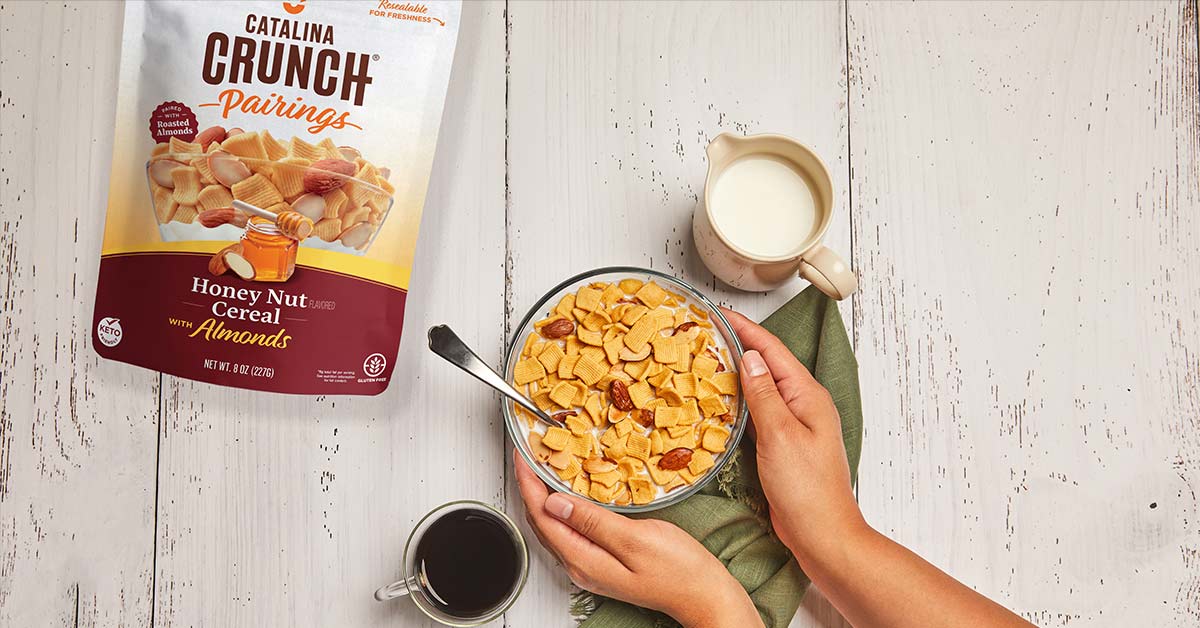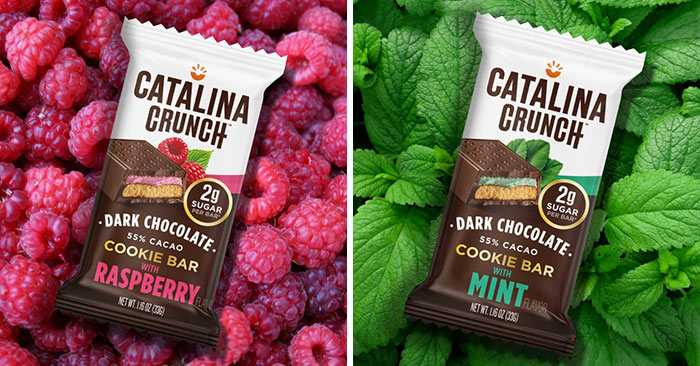Catalina Crunch Takes “Avenue Of Growth” In Snacking

Catalina Crunch was founded in 2017, riding the wave of low-carb, low-sugar breakfast brands positioning towards the keto-friendly lifestyle. Now, under a new CEO, the company is counting on its expansion beyond the cereal aisle into better-for-you snacking to drive growth among the fitness-focused community.
Last Thursday, the Indianapolis-based company announced that founder Krishna Kaliannan had stepped down as CEO and that CPG industry veteran Doug Behrens would be her successor. Kaliannan will remain involved in the day-to-day operations but will also focus his time on research and development as Catalina Crunch’s president Joel Warady has “transitioned to another opportunity,” the company announced in a press release.
Kaliannan led the brand over its first six years, taking it from his original idea of a cereal brand for diabetics and weight-conscious consumers to a multi-category snack platform.
Behrens’ track record is highlighted by leadership experience at Danone, Amplify Snack Brands and, most recently, KIND as its president and chief customer officer.
His background aligns with Catalina’s evolving strategic priorities: Although cereal makes up 70% of the brand’s portfolio and will continue to be its main focus, the “avenue for growth” in 2024 lies in expanding further into snacking, CMO Andy Van Ark told Nosh last week.
As evidenced by the launch of its Dark Chocolate Cookie Bars in December, Catalina sees a lot of potential in sweet snacks. The brand is preparing to add Peanut Butter and Caramel flavors (alongside current SKUs Raspberry and Mint) to the line, which offers 3 grams of net carbohydrates and 2 grams of sugar (plus allulose and erythritol) per bar.

The new varieties will target an even larger market opportunity, with “about 50% of consumers looking for those specific flavor profiles” according to the company’s research, Van Ark added.
With an eye towards these health-conscious consumers, the company has recruited some help. On Monday, Catalina released its Honey Nut with Almonds cereal, a limited time offering created in collaboration with New York Knicks star point guard Jalen Brunson and featuring the player on the bag. Reminiscent of the clout that came with famous athletes gracing the front of Wheaties boxes, the partnership opens the door to “consumers that may not know us and may not know the benefits that our products provide,” Van Ark said.
“Fitness is definitely a space that we’re interested in and we played in the past but we want to play in a bigger way,” he said. “Fitness and well-being is that broader consumer…[Brunson] appeals to those consumers that we really haven’t talked to at that scale in the past.”
Chocolate bars open Catalina Crunch to new touchpoints in stores and a new consumer base, but also to a “mega category dominated by sugar” where its better-for-you products can showcase their value, he said. Yet, low-sugar chocolate bars are a growing subcategory where strategics have taken an interest with Mondelēz acquiring Hu and Hershey buying Lily’s both in 2021. Unreal has been steadily building a national presence with a dedicated consumer base while better-for-you food and beverage brand Oobli recently launched its own line of low-sugar milk chocolate bars.
The company expects to be in 22,000 locations in 2024 and will be adding a new distribution partnership with Sprouts that will put its Pairings cereal line (launched last August) in 403 locations in March. With the exception of cookies, the company has self-manufactured all of its products from a facility outside Indianapolis since 2021.
Last year, the brand focused on mass retailers, specifically Target, Walmart and Kroger. The brand has also dipped its toe into the club channel, participating in Costco roadshows.
“[The brand is] showcasing that there’s better, healthier options out there, across multiple categories that consumers can experience and ultimately better their lives with,” Van Ark said.


















